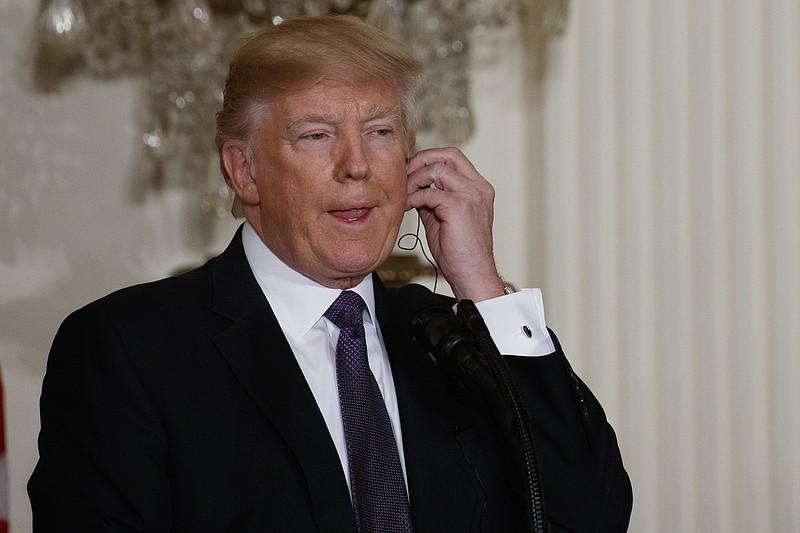WASHINGTON (AP) - President Donald Trump on Monday vowed to "deal with" North Korea, calling it "a big, big problem" without mentioning the ballistic missile it test-fired over the weekend or any planned American response.
The Pentagon was more pointed in its assessment of the problem. A spokesman said technical advancements in North Korea's ballistic missile programs, demonstrated in the latest test-launch from a mobile launcher, pose a "clear, grave threat" to U.S. security.
That assessment reflected concern as well as frustration among U.S. officials, who see North Korea pushing ahead, in defiance of U.N. Security Council resolutions, with development of missiles capable of striking U.S. territory with nuclear weapons.
"North Korea's unlawful weapons programs represent a clear, grave threat to our national security," a Pentagon spokesman, Navy Capt. Jeff Davis, said Monday. "North Korea openly states that its ballistic missiles are intended to deliver nuclear weapons to strike cities in the United States, the Republic of Korea, and Japan."
Trump has said he puts high priority on developing better defenses against such missiles, but his administration has not said how it will respond to Saturday's missile launch, short of condemning it as a dangerous provocation.
At a joint news conference Monday at the White House with Canadian Prime Minister Justin Trudeau, Trump was not asked about the missile test, but he brought up North Korea when a reporter asked what are the "most important national security problems" facing the U.S.
"Obviously, North Korea is a big, big problem and we will deal with that very strongly," Trump said. He did not elaborate.
Trump indicated during the transition period after he won the November election that he would make missile defense a high priority, citing the threat posed by North Korea. But he has not has yet defined a strategy for dealing with that. In a brief statement Saturday night prompted by North Korea's missile test he said the U.S. will stand by Japan "100 percent."
Davis, the spokesman, said the U.S. tracked the flight of the missile launched on Saturday evening, U.S. time, and assessed that it traveled about 500 kilometers, or about 310 miles, before landing in the Sea of Japan. He said the missile appeared to be a land variant of a submarine-launched ballistic missile known outside of Korea as the KN-11.
Davis said the missile appeared to be powered by solid fuel, which represents a technological advancement from liquid-fuel missiles. The mobile launcher from which the missile was fired had not previously been seen in public, he said.
A road-mobile missile launcher presents a more difficult challenge for the U.S. and its allies in the region because it reduces the time available to detect and respond, compared to launching from a fixed site.
"Road mobile allows it to hide, to evade detection and to be able to launch with little notice," Davis said.
